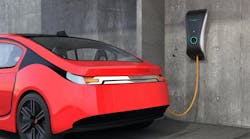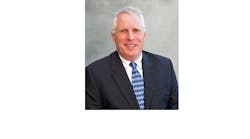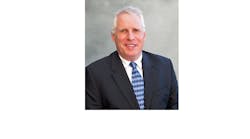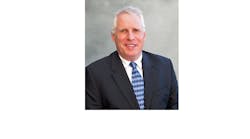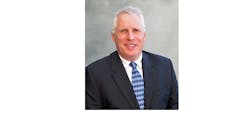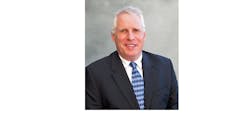Despite the ongoing acquisition trend, the industry's structure remains surprisingly static.
Taking the pulse of the industry, Electrical Wholesaling once again has identified the 250 largest electrical distributors in the U.S. The listing appears in this issue on page 29.
Providing evidence of the ongoing consolidation of the industry, twelve companies disappeared from the previous list after being acquired. With others seeing their 1998 sales volumes fall short of the ranking's $24 million cutoff, the roster of the 250 showed considerable change.
In total, this year's 250 tallied about $32 billion in 1998 sales, or 44% of industry sales. And even though the dollar amount of the group's 1998 sales rose about $2 billion-plus from the previous year, their market share did not budge. Other factors remained the same, too, indicating little change in the industry's structure:
Six companies with more than $1 billion each in electrical product sales headed up the $72 billion electrical wholesaling industry in 1998; sales tallies fall off abruptly after that point, to the $575 million mark.
Graybar Electric Co., Inc., St. Louis, Mo., still tops the list of the nation's largest electrical distributors. With $3.7 billion in sales in 1998, the distributorship outpaced its nearest rival in sales volume, WESCO Distribution, Inc., Pittsburgh, Pa., by $675 million. The four national chains together still do about 15% of industry sales, the same as in 1997.
Specialized distributors represent 20% of the companies listed and maintain a 7% share of market.
While acquisition activity abounds, small firms continue to do more than 60% of the business.
But some things have changed:
*A surprising number of distributors reported lower sales in 1998 than in 1997, an unusual occurrence in a year of strong, steady economic growth. This phenomenon may reveal the impact of price deflation on distributors' sales, or in some cases, may reflect changing markets.
*More electrical distributors have grown or acquired their way into operating as large companies by anyone's standard. For example, by EW's estimates, 48 electrical distributor companies did $100 million or more in sales in 1998; five more than in 1997.
*Dramatic up-sizing remained an option for growth, but one used by fewer companies in 1998 than in 1997. Again in 1998, the industry saw instances of companies adding 30% or more to their sales size in a single acquisition move.
*A new player with sizeable aspirations emerged in 1998: Sonepar Distribution U.S., Inc., based in Reading, Pa., acquired Eagle Electric Supply Co., Inc., Norwood, Mass., in 1998, and this year purchased Cooper Electric Supply Co., Tinton Falls, N.J. and World Electric Supply, Miami, Fla.
*The pace of acquisition seems to have slowed in 1998. Twelve companies on our list in 1998 do not appear this year, due to acquisition. Ten acquisitions occurred in 1998 compared to 16 in 1997. The other two missing companies were acquired in 1999.
All but two distributor acquirers stand among the top 25 distributors in size. Their activity shifted (consolidated) approximately $480 million-around seven-tenths of one percent of industry sales. 1998's top 25 had combined sales of $20.1 billion (28% of industry sales) with 44,263 employees and 2,679 houses. Interestingly, in 1995, the top 25 companies had $16.7 billion in sales, with 35,419 employees and 2,366 houses. That represented 29% of industry sales. While acquisitions have created larger distributors, they have done little to consolidate the industry.
